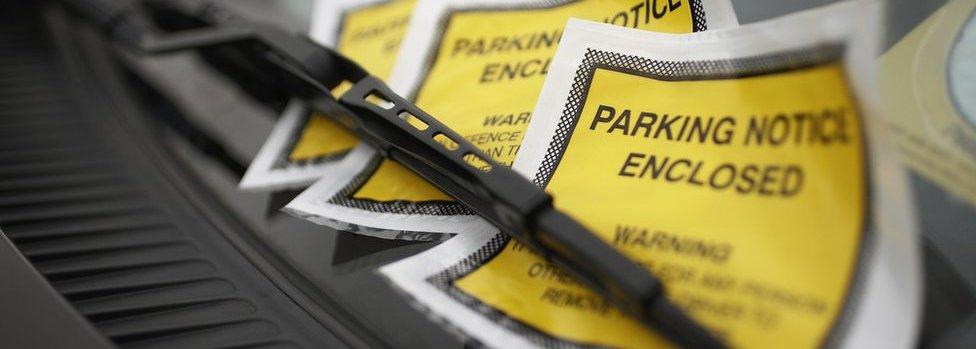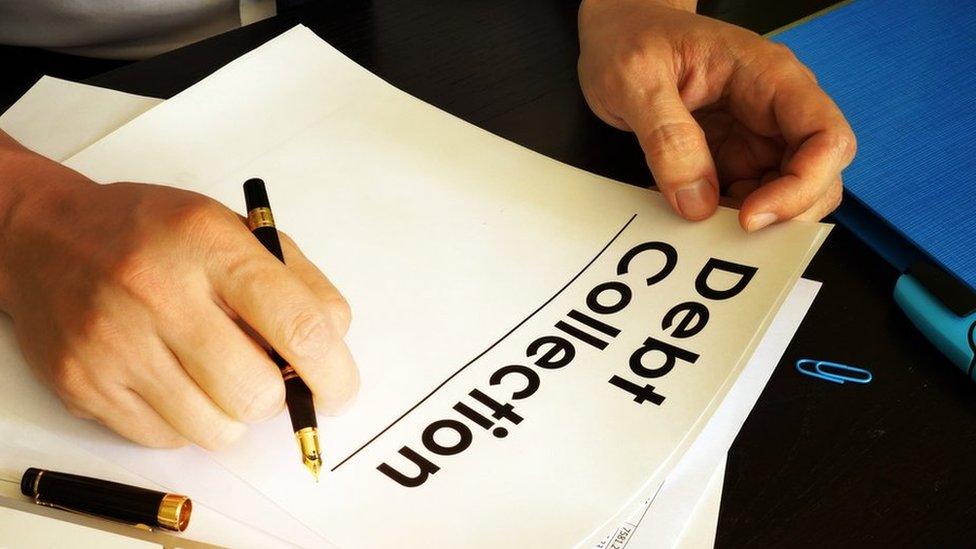Bailiffs 'used more to chase unpaid parking fines'
- Published
- comments

The use of bailiffs to pursue drivers for unpaid parking fines has risen by 21% in two years in England and Wales, according to a debt charity.
Parking debts were passed from councils to enforcement agents on nearly 1.1 million occasions in 2018-19, analysis by the Money Advice Trust found.
Bailiffs were only called in more frequently by councils to collect unpaid council tax.
Local authorities said they had a duty to collect this money.
Bailiffs cannot force their way into people's homes, but they can take money on the doorstep, or possessions inside or outside a home to cover the cost of unpaid debts.
The Money Advice Trust, which runs the National Debtline, collected data from 367 local authorities and found that more than 2.6 million debts were referred to bailiffs.
Council tax accounted for the largest proportion of cases (54%) but the total of 1.4 million was unchanged from two years ago.
In contrast, the use of bailiffs to pursue parking fines has risen to now account for 41% of bailiff use by local authorities. For smaller councils, their use to collect unpaid fines from drivers had risen by 55% in four years, the analysis suggested.

When bailiffs are called in
Local authorities typically have their own traffic wardens - called civil enforcement officers - who issue penalty charge notices for parking on double yellow lines, in a permit-only zone, on zigzag lines, or in parking meter zones.
These parking penalty notices are not criminal offences. Drivers cannot be sent to prison for not paying. Instead, they are enforced through a county court.

Twenty-one days after a court order is issued, the local authority can issue a warrant to the bailiffs, which allows the bailiffs to act.
It is not possible to ask the court to suspend the warrant or to make an order to allow the charge to be paid in instalments.
The rules differ for council tax arrears, housing benefit overpayments and unpaid business rates.

The Money Advice Trust is calling on the government to change the rules to allow drivers who are struggling to pay a fine to offer it in instalments.
"Bailiff action should only ever be used as a last resort and can be avoided," said Joanna Elson, chief executive of the trust.
"We will continue to work constructively with councils to help them reduce their bailiff use - and to impress on central government the urgent need for the national policy changes that are required to quicken the pace of change."
Richard Watts, from the Local Government Association, which represents councils, said: "Councils have a duty to their residents to collect taxes, which play a vital role in funding important services that people rely on."
Russell Hamblin-Boone, chief executive of the Civil Enforcement Association, said: "Enforcement action is an option used by local authorities to recover over £500m of unpaid taxes and fines recovered each year, at no cost to the public bodies, which funds local services from adult social care and children's services, to refuse collections and road repairs."
The Ministry of Justice is reviewing whether bailiffs should be independently regulated.
- Published8 September 2019

- Published7 June 2019

- Published22 July 2019

- Published11 April 2019
